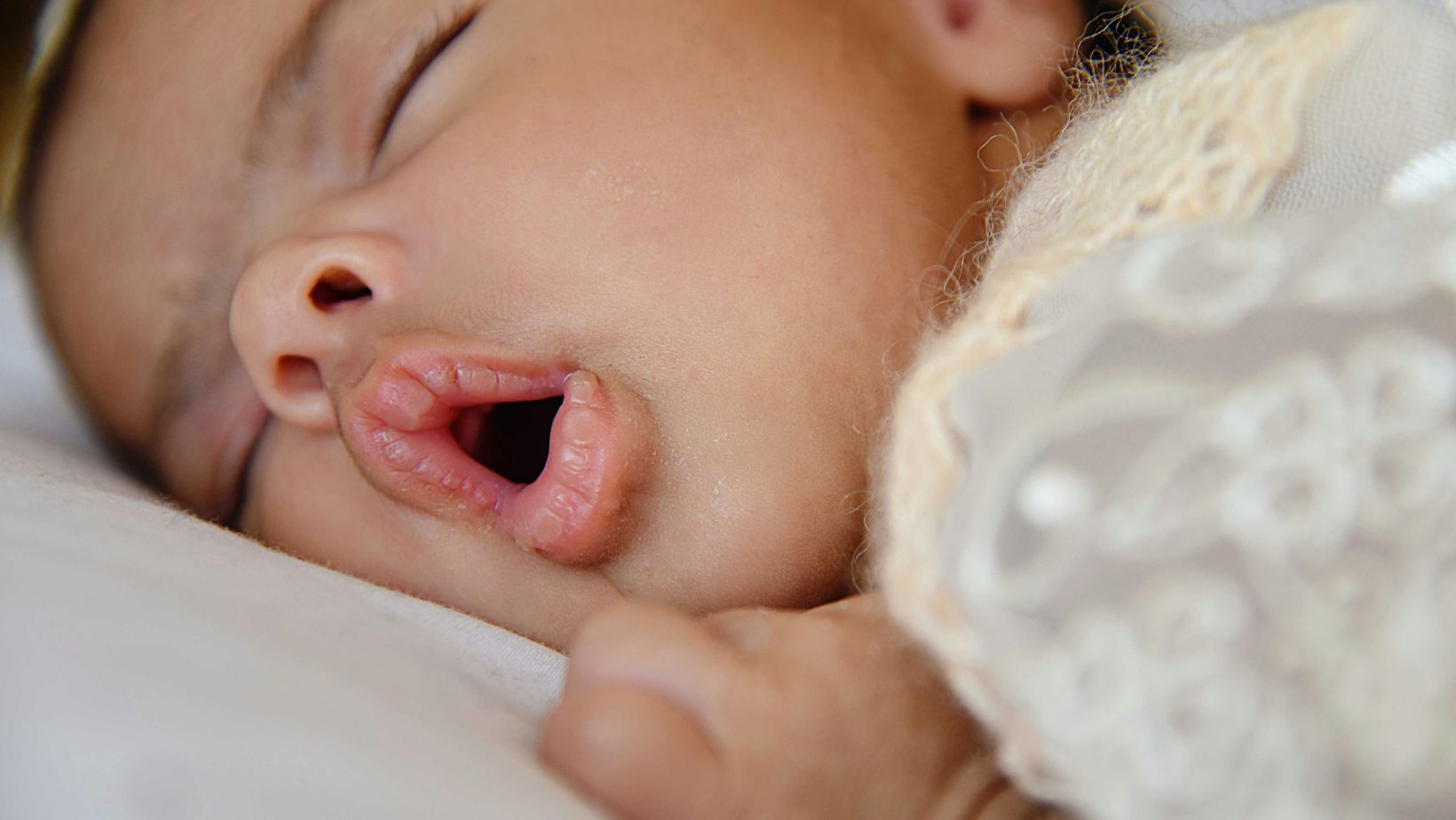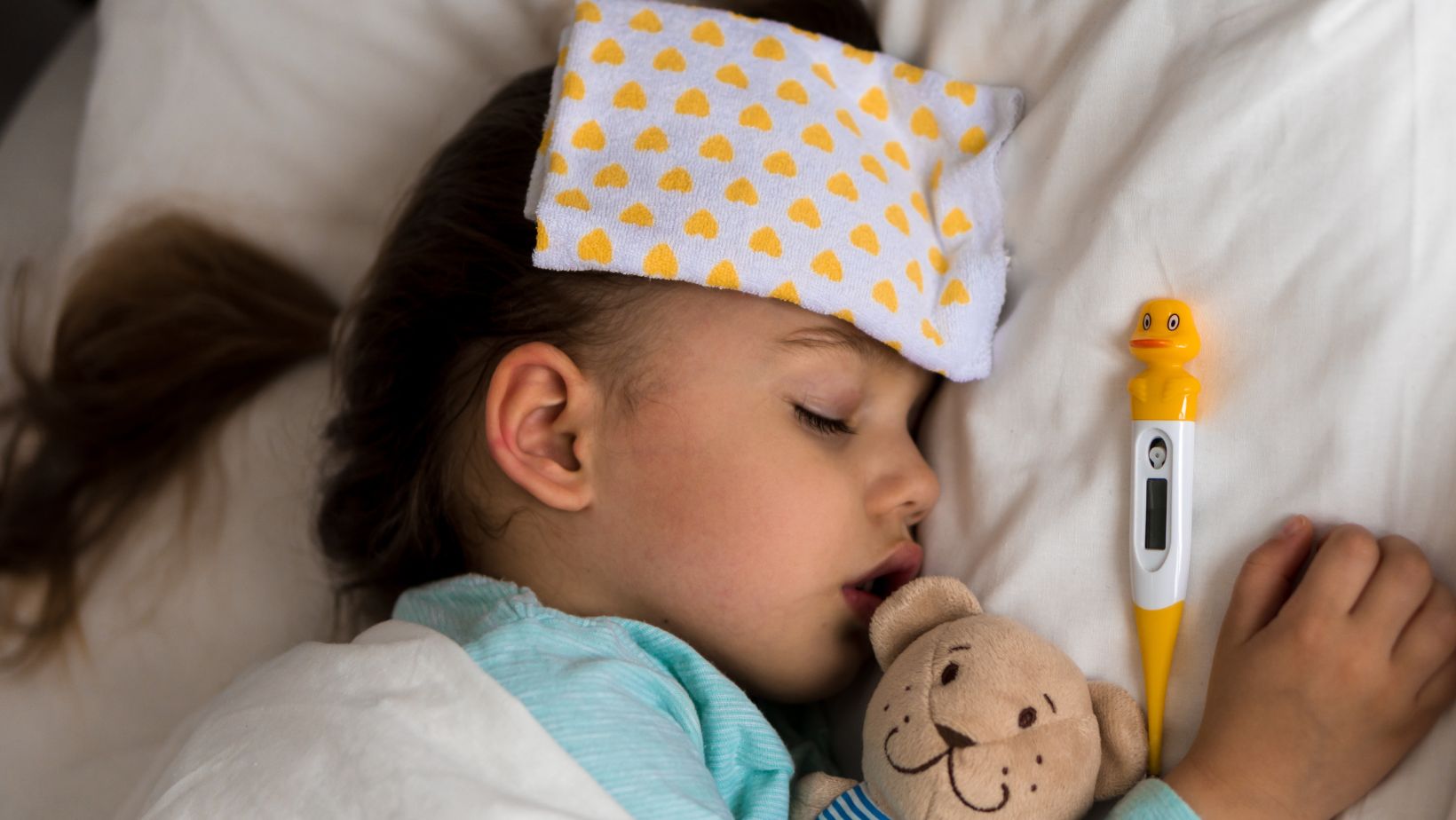 As a parent, you probably do everything in your power to keep your baby safe and healthy. You wash bottles, sterilize pacifiers, and make sure your little one gets all the cuddles and rest they need.
As a parent, you probably do everything in your power to keep your baby safe and healthy. You wash bottles, sterilize pacifiers, and make sure your little one gets all the cuddles and rest they need.
However, there are some surprising items around the house and in your daily life that could potentially make your baby sick. It can happen even when you think you are being cautious.
We often overlook the unexpected sources of germs and illness because they seem so harmless. Everyday objects, specific foods, and even our well-meaning family members can sometimes pose hidden dangers.
By becoming aware of the lesser-known risks, you can take simple steps to protect your baby. This article takes a look at some surprising things that might make your baby unwell and how you can avoid them.
Air Conditioners and Humidifiers
Air conditioners and humidifiers might seem like great ways to keep your little one comfortable. But if you are not careful, they can lead to some unexpected health issues. For instance, air conditioners can dry out the air in your baby’s room, leading to dry skin, irritated eyes, and stuffy noses.
Babies have extremely sensitive skin and fragile respiratory systems, so spending too much time in cold air can make them susceptible to respiratory infections. Additionally, if the air conditioning filters are not maintained properly, they can circulate germs, increasing the chances of allergies and illness.
Humidifiers can be a double-edged sword, especially if not cleaned regularly. Some humidifiers can produce white dust from the minerals found in tap water, which can irritate your baby’s lungs and airways.
According to WebMD, humidifiers can be great tools to keep your little one cozy. However, you must choose the right liquid for your humidifier and be aware of the potential risks associated with it. To use humidifiers safely for your little ones, you need the right equipment and take good care of it.
Always use distilled water in your humidifiers, and be sure to check the room’s temperature and humidity levels. It helps to prevent any sudden changes that could put stress on your baby’s developing immune system.
Soft Toys
Soft toys are often a baby’s go-to buddies, providing both comfort and fun throughout the day. But these cuddly companions can also collect germs, dust mites, and allergens that you might not even think about.
Babies love to snuggle, chew, and drag their soft toys all over the place. It means these toys end up picking up all kinds of dirt and bacteria from the floors. Over time, this can lead to a build-up of microorganisms that could make your baby ill.
Independent notes that some studies suggest that soft toys can harbor more germs. Some of them can be more harmful than hard toys. It means that softer toys might be more likely to spread pathogens. Bacteria and fungi tend to thrive in damp environments, forming biofilms that provide them with protection, making them harder to eliminate.
To protect your baby, wash soft toys often in hot water and select ones that are easy to clean. Regular cleaning will help keep your baby’s favorite cuddle buddy safe and in perfect shape.
Baby Formula
Baby formula is a handy and nutritious choice for feeding your little one. However, if not handled correctly, it can sometimes lead to illness. How you prepare and store the formula matters when it comes to keeping your baby safe.
Choosing the right formula for your baby can come with its own set of challenges, so it’s essential to be informed. Necrotizing enterocolitis (NEC) is a serious gastrointestinal issue that primarily affects premature infants and those born with low birth weights. Recent NEC lawsuits indicate that formulas made from cow’s milk might increase the risk of NEC in these vulnerable babies.
As reported by TorHoerman Law, the latest lawsuit trials are grabbing headlines. Baby formula companies have received orders to shell out hundreds of millions of dollars. Therefore, choose the formula wisely to prevent any adverse effects.
Moreover, always ensure to wash your hands before preparing the formula. Use water that has been freshly boiled and cooled, and dispose of any leftover formula after feeding. These easy practices can help protect your baby from unexpected tummy issues and ensure that feeding time is safe and healthy.
Bottles and Sippy Cups
Bottles and sippy cups are essential for babies, but if not cleaned properly, they can turn into hotspots for harmful bacteria. Any leftover milk inside bottles or tucked away in the tiny parts of sippy cups creates a cozy home for germs. It can lead to a weakened immune system in your little one.
Sippy cups, especially those equipped with valves, straws, or multiple pieces, can trap moisture. Choose cups that are easy to clean, and ensure every part is dry before reassembling. By keeping bottles and sippy cups clean, you can help shield your little one from unexpected illnesses.
 According to the Cleveland Clinic, the longer you wait to wean your child off the bottle or sippy cup, the harder it will be. Moreover, delaying the transition can increase the risk of many health issues. Weaning your little one from bottles and sippy cups can feel a bit overwhelming at the start. But your patience and effort will pay off.
According to the Cleveland Clinic, the longer you wait to wean your child off the bottle or sippy cup, the harder it will be. Moreover, delaying the transition can increase the risk of many health issues. Weaning your little one from bottles and sippy cups can feel a bit overwhelming at the start. But your patience and effort will pay off.
Houseplants
Adding houseplants to your home can create a lovely atmosphere and bring a slice of nature inside. Babies are naturally inquisitive and often like to grab leaves or put parts of plants in their mouths. Even a little bite can trigger symptoms such as swelling, pain, and difficulty swallowing. Sap exposure could result in rashes or eye irritation.
Good Housekeeping states that there are so many beautiful plant varieties that can brighten up your home. You can enhance your garden or bring a bit of greenery to your kitchen windowsill. However, as you hunt for that perfect plant, remember that some options can be dangerous for both humans and pets.
Some plants may only cause mild stomach issues, but others can be much more harmful. Keep the plant tags handy for easy reference, and be sure to educate older children about the importance of not touching or eating any houseplants.
If you think your baby might have come in contact with a toxic plant, reach out to your local poison control center. By staying careful and well-informed, you can relish your plants while keeping your little one safe.
FAQs
Why has my baby suddenly started being sick?
Babies can start throwing up for a variety of reasons. The most common culprit is a stomach virus. But it could stem from food allergies, reflux, feeding issues, or even ear infections. Typically, vomiting lasts just a day or two and is not a cause for concern, but keep an eye out for signs of dehydration.
When to worry about a baby getting sick?
You should worry if your baby is under three months old, has a fever, and seems unusually sleepy. Moreover, when the baby refuses to eat, has difficulty breathing, looks pale or blue, or cries continuously, it is time to be concerned. If something feels off, trust your instincts and consult a doctor.
At what age do most babies get sick?
Most babies tend to fall ill during their first year, particularly from three to twelve months. Their immune systems are still maturing and encountering new germs, especially if they are around other kids or in daycare. It is common for them to catch six to eight colds a year during this time.
The reality is that some unexpected items in your home can also make your baby unwell. Regular cleaning, safe storage, and thoughtful choices about household items can significantly help in keeping your child safe.
Most baby illnesses are minor and treatable. However, being aware of these hidden hazards can prevent unnecessary discomfort. It helps keep your baby healthy and happy while they grow and discover the world around them.


















